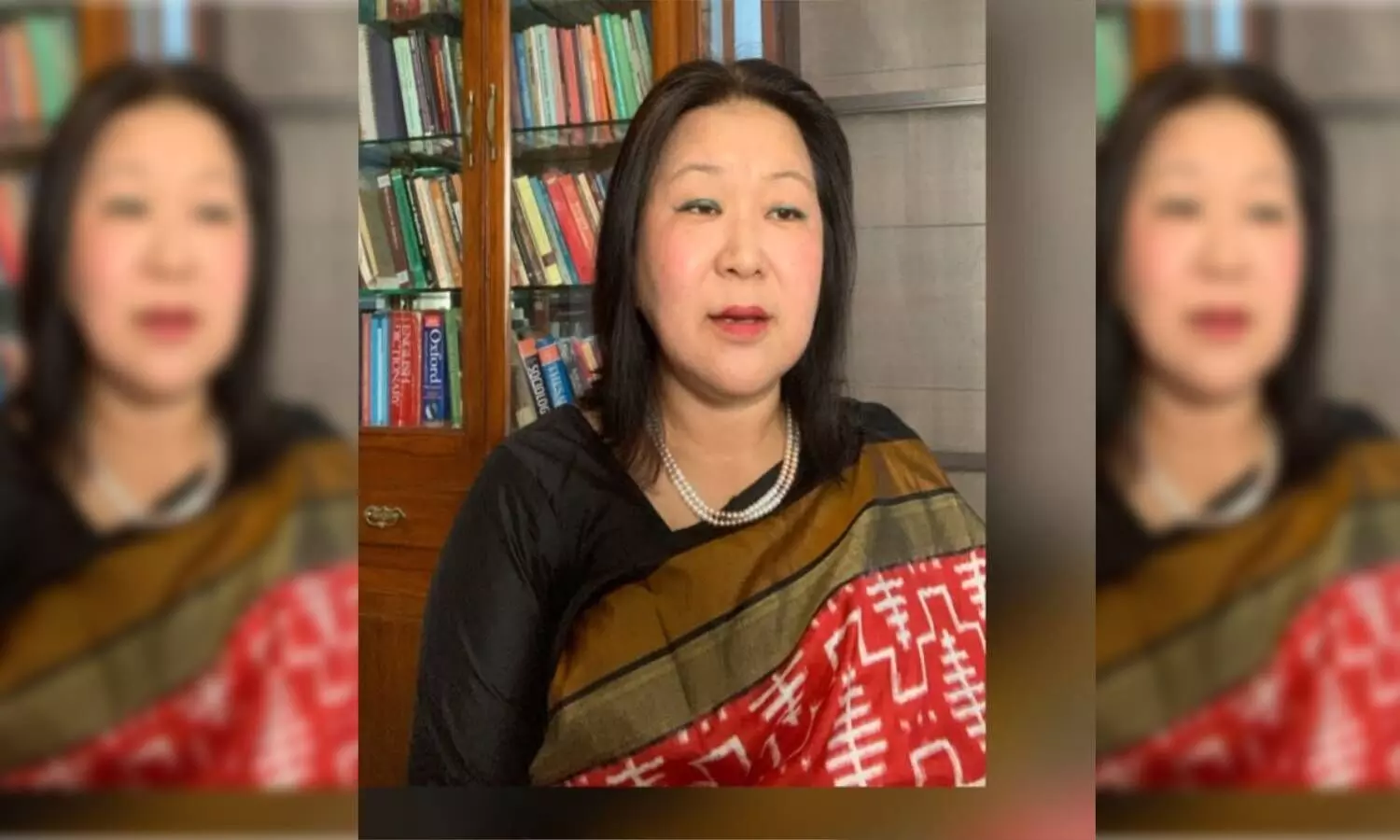UoH Professor unravels untold stories of trafficked survivors and sex workers in Manipur
The findings of the EPW article indicate that most of the trafficked survivors are tribals lured with the expectations of high income in a foreign land
By Newsmeter Network
Hyderabad: Professor Ajailiu Niumai, Head of the Centre for the Study of Social Exclusion and Inclusive Policy(CSSEIP), University of Hyderabad has carried out a study titled 'Untold Stories of Human Trafficked Survivors and Sex Workers in Manipur' which has been published as a special article in the Economic and Political Weekly (EPW).
The paper aims to explore the various untold narratives of trafficked survivors to understand their intersectional experiences. It further seeks to know if commercial sex and human trafficking are connected.
Prof. Ajailiu Niumai met the Hon'ble Chief Minister of Manipur, Shri Nongthombam Biren Singh and discussed the issue of human trafficking in the state
A topic with scarce data available, Prof Niumai decided to go out and do the fieldwork to obtain the required quantitative and qualitative information. "The fieldwork experience is unique as it adds incremental knowledge when it engages with deeper layers, and this paper is one such attempt to access such unpublished data," says Prof. Niumai.
As per the the study, Iraq, Kuwait, Bangalore, and Delhi are the major destinations of a large percentage of trafficked victims. Most of the trafficked survivors are found to be tribals lured with the expectations of high income in a foreign land. Prof. Nuimai also identifies the Moreh route that these traffickers mostly use as it is easier to transit into Myanmar. Manipur emerged as a convenient transit route for the international trafficking racket. For instance, the study finds that around 179 trafficked Nepalese (147 women and 32 men), including traffickers, were arrested by the Government of Manipur in Moreh and Imphal.
The survivors were lured with expectations of high income in a foreign land. Iraq, Kuwait, Bengaluru, and Delhi are the major destinations of a large percentage of trafficked victims. "We see that both Delhi and Bengaluru are the traditional destinations for students from North East India to study. Moreover, it is here that familiarity and a network have already been established and it would arouse less suspicion. Human trafficking is not only imposed by the traffickers on the victims, but quite a few respondents decided voluntarily to be trafficked in the guise of seeking employment," finds Prof Niumai.
The study further sees that there is a demand for domestic servants and laborers in metropolitan cities. The traffickers find it easy to obtain the special permit at Moreh to transit into Myanmar. "They use the Moreh route to traffic Indian and Nepalese girls and women, and some men to Myanmar, where some of them are given new identities in the status of Myanmarese passports. From Myanmar, they have trafficked ahead to the Middle East, West Asia, and Southeast Asian countries with their new identities." finds prof Niumai.
She adds that the only similarity between traffickers and the militant organizations is that both are network-centric, aided by multiple nodes connected invisibly through cell phones and sophisticated communication tools without a center. "The challenge is deeply rooted due to the weaknesses of the anti-trafficking regimes. Preventing human trafficking in Manipur will require the creation of social security, job avenues, and financial well-being for everyone," said Prof Niumai.